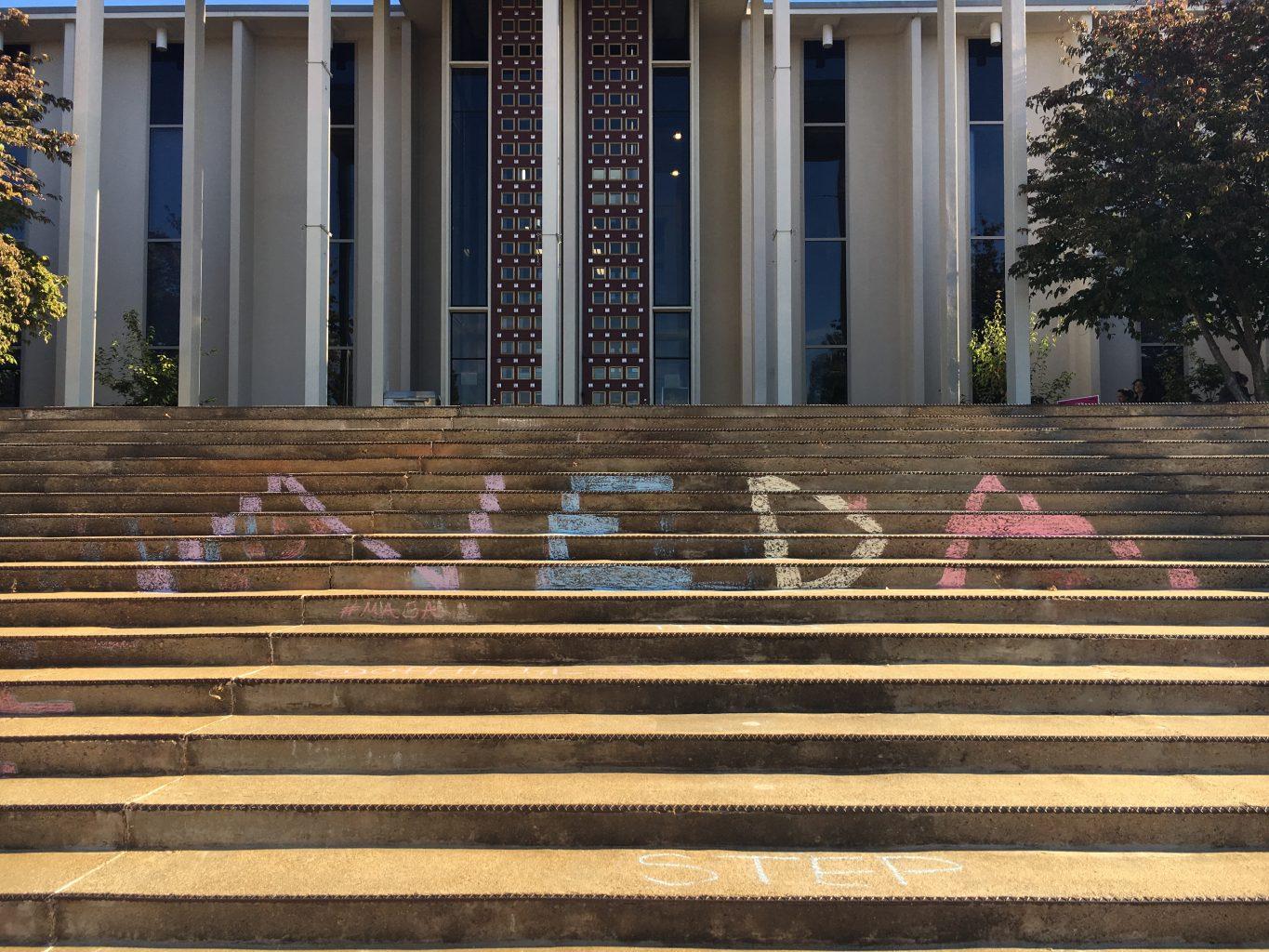
Kady Braswell
A&F Staff Writer
[email protected]
A typical Saturday for the average college student, Nov. 5 shone a light on a mental illness claiming the life of at least one person every 62 minutes.
UNC Asheville held a National Eating Disorder Association Walk over the weekend that included speeches, a smashing of the scales and sidewalk messages written in chalk to spread good vibes around campus.
“It was so heart-warming to be surrounded by a community of strong individuals, regardless if they had actually experienced the horror of an eating disorder like I have,” Graysen Schappell said.
Schappell, an Asheville resident, met her girlfriend Bethany Swope while in treatment for their eating disorders — both attributing the sense of family they created within the several months of their in-patient treatment and recovery.
Having an accountability partner who makes sure you’re meeting your needs for the day and encourages you to keep choosing to get better everyday is an important factor of recovery, Swope said.
“It’s easy to get caught up in the whole, ‘I can do this on my own’ mentality,” Swope said. “But I can tell you from experience. It wasn’t until I started attending these walks and I met Graysen and I actually started to let others help me that I began to make the progress I needed.”
The walk lasted roughly an hour and a half and raised almost $5,000, half of their intended goal, according to the NEDA website. Donations will be accepted until Dec. 5.
According to the NEDA website, eating disorders are only given $28 million per year for research to find out what causes them, what goes through the mind and the best ways to treat each individual with each individual eating disorder. The average price spent per person was a mere 93 cents, while the average price spent per person with autism was $44.
“We talked about that at the walk as well,” said Schappell, who donates part of her paycheck every month. “It’s a little scary knowing how prevalent eating disorders are, especially among people my age, and realizing that it’s not up to par with say, Alzheimer’s or schizophrenia, when it’s just as confusing for people to understand.”
Schappell, Swope and the handful of others who attended the event were given the chance to take their scales to the grave and smash them with hammers, destroying them not only physically, but also destroying the idea of determining self-worth by a number.
Taylor Speagle, who did not participate in the smashing of the scales but did attend the walk, said it was empowering to see women take back their life, in a sense, by breaking the one thing that made them question the person they were.
“I started getting teary-eyed watching them because I’ve had friends struggle with eating disorders and I know the kind of toll it takes on your body, mind, life and spirit,” senior student Speagle said. “And this is kind of their way of saying ‘No more,’ and that is something to look up to.”
As a psychology student, Speagle said she finds it interesting to research the environmental and social factors that play into the development of an eating disorder and has even chosen to use it as the basis for a few projects this semester.
Much like the sidewalk chalk messages walk attendees were able to leave around campus, Speagle chose to write out messages of hope and statistics on eating disorders along with the standards society places on women, especially models, for students around school.
“I want to show that it can affect anyone and that eating disorders don’t have a specific face,” Speagle said. “I’ve loved seeing these messages such as ‘You are stronger than the struggle’ and ‘Your worth is not determined by a number’ on the sidewalks around campus because I think they can open up people’s eyes to the harsh reality people, maybe even their friends are going through.”
Graysen Schappell plans on attending this one as well, as she said she loves the different communities that come together from all walks of life in every town.
“We all grow up differently, but this is something we can come together on and something we can fight together for,” Schappell said.
The next regional NEDA event will be held in Greensboro on the 19th. Attendees can choose to register as a group or by themselves and everyone is encouraged to donate what they can.


















